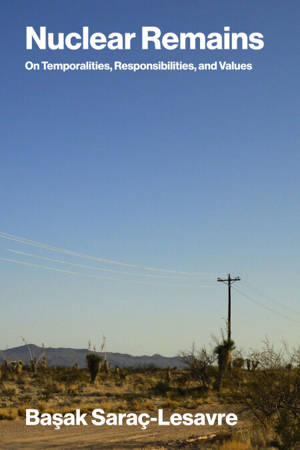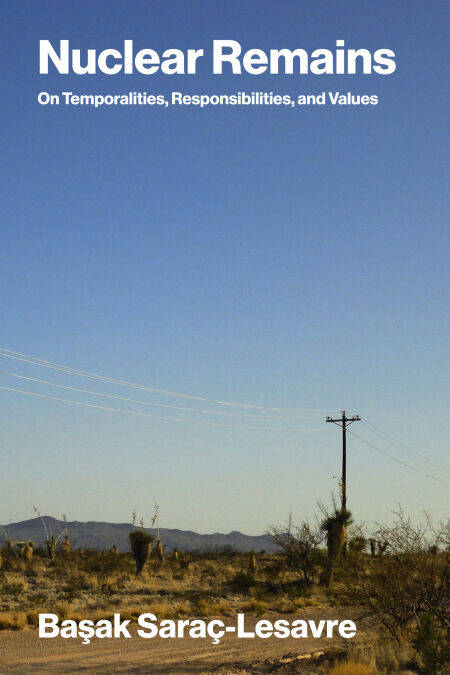
- Afhalen na 1 uur in een winkel met voorraad
- Gratis thuislevering in België vanaf € 30
- Ruim aanbod met 7 miljoen producten
- Afhalen na 1 uur in een winkel met voorraad
- Gratis thuislevering in België vanaf € 30
- Ruim aanbod met 7 miljoen producten
Zoeken
€ 54,21
+ 54 punten
Uitvoering
Omschrijving
An ethnography of U.S. nuclear waste policy, and how to understand contemporary societies’ attempts to establish “good” relations with the future.
Contemporary societies are often criticized for their incapacity to account for the long term. Nuclear Remains asks what happens when a society decides to think long term—examining the US efforts to hold present and distant futures together.
Focusing on the case of the US nuclear waste program, Başak Saraç-Lesavre argues that no temporal orientation is inherently ethical; what matters is how temporal orientations construed as desirable get translated into action.
To analyze how concerned actors seek to establish “good” relations between past, present, and future, Saraç-Lesavre introduces the problem of rendez-vous framework—tracing how temporal gaps are identified and resolutions formulated and inscribed in different forms of arrangements. Her multisited ethnographic research takes readers from Congressional debates over funding—to reconcile accountability to and immunity from politics—to Carlsbad, New Mexico, where local actors have been trying to keep their community attached to nuclear futures.
Over time, these arrangements face tests. They are barely ever considered au rendez-vous when meeting contemporary conditions, yet they produce significant effects: material, economic, political, and moral relations, and ultimately, societies themselves. This framework applies broadly to cases where temporal relations are at stake: climate change adaptation, government of commons, pension schemes, energy transition, and care systems.
Contemporary societies are often criticized for their incapacity to account for the long term. Nuclear Remains asks what happens when a society decides to think long term—examining the US efforts to hold present and distant futures together.
Focusing on the case of the US nuclear waste program, Başak Saraç-Lesavre argues that no temporal orientation is inherently ethical; what matters is how temporal orientations construed as desirable get translated into action.
To analyze how concerned actors seek to establish “good” relations between past, present, and future, Saraç-Lesavre introduces the problem of rendez-vous framework—tracing how temporal gaps are identified and resolutions formulated and inscribed in different forms of arrangements. Her multisited ethnographic research takes readers from Congressional debates over funding—to reconcile accountability to and immunity from politics—to Carlsbad, New Mexico, where local actors have been trying to keep their community attached to nuclear futures.
Over time, these arrangements face tests. They are barely ever considered au rendez-vous when meeting contemporary conditions, yet they produce significant effects: material, economic, political, and moral relations, and ultimately, societies themselves. This framework applies broadly to cases where temporal relations are at stake: climate change adaptation, government of commons, pension schemes, energy transition, and care systems.
Specificaties
Betrokkenen
- Auteur(s):
- Uitgeverij:
Inhoud
- Aantal bladzijden:
- 272
- Taal:
- Engels
- Reeks:
Eigenschappen
- Productcode (EAN):
- 9780262052870
- Verschijningsdatum:
- 18/05/2026
- Uitvoering:
- E-book
- Beveiligd met:
- Adobe DRM
- Formaat:
- ePub

Alleen bij Standaard Boekhandel
+ 54 punten op je klantenkaart van Standaard Boekhandel
Beoordelingen
We publiceren alleen reviews die voldoen aan de voorwaarden voor reviews. Bekijk onze voorwaarden voor reviews.








